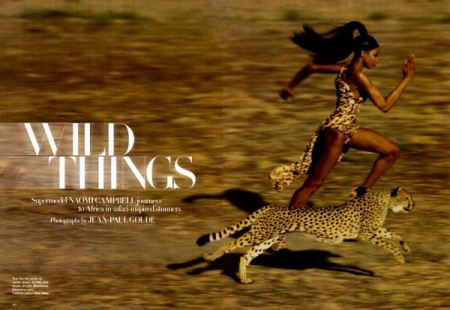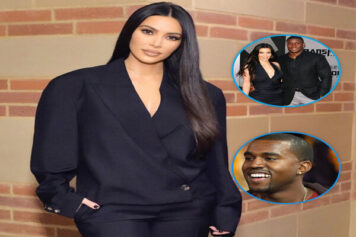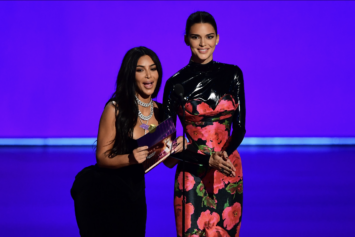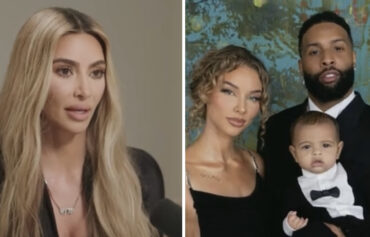The Black experience and cultural significance has been in the news more times in the past five years than I can remember relative to the last 20 years of my time on Earth. Tenets of race and race relations have increasingly become the center of public discourse since the election of President Barack Obama in 2008 for certain. It is a bit of a surreal standpoint for those of us who grew up in the 1970s and 1980s.
The voices of the ethnic and racial minorities in the United States were considerably less audible than they are now, thanks in large part to digital media, portable communications devices and the Internet. However, we’ve now come to a point where white folks have become increasingly bold and daring in broaching sensitive subjects of race and class in America.
You see, white comedians, politicians and conservative radio talk show hosts were once the only White people who felt “safe” speaking openly on race. Everybody else wanted to pretend it wasn’t as big a deal as it actually is. No, not that white chick with the “Bob” haircut and her beautiful beige babies, not the coolest, saggy pants-wearing white male hip-hop lover, not your liberal hippy college professor, not your mother’s white co-worker who you swore had a crush on you but were too afraid to ask…not nobody had the guts to talk openly about race relations in American 20 years ago without expressed consent of some kind. Even then, it was interpersonal rather than multimedia induced.
Hyperbole used to dramatic effect aside, these days everybody and their mother is talking about Black people. Yes, ladies and gentleman, after being pushed to the margins of society for over four centuries, people of African descent are now more popular than ever it would seem.
For a group of people that the latest U.S. Census claims makes up around 12 percent of the population in the United States of America, people of African descent are driving the national conversation at an accelerated rate.
A quick glimpse at the national news cycle solidifies my point. The recent mid-term elections have seen the Democrat Party decimated by its Republican counterparts. Who gets the blame? Black people for not voting. Never mind the lily-livered, yellow-bellied, sucker emcee candidates the Democrats trot out year after year. It’s Black people’s fault.
Mother of slain Ferguson, MO resident Michael Brown has been in the news on two fronts. There was the news of her increased activism as she announced her intention to go to the United Nations to discuss police brutality in America. However, just days after that ray of inspiration hit the news came reports that Lesley McSpadden might be charged with felony robbery charges stemming from a confrontation with a group of individuals who were selling bootleg Michael Brown t-shirts. It’s not an unfair conclusion for an average mind to connect the dots of an alleged criminal mother who is accused of robbery to a “thug” son who was menacing Officer Darren Wilson, who in turned used deadly force against him. B.S. to be certain, but more than half the country would follow that thought process. Guaranteed!
The minds of people play interesting games of connect the dots when doing so will buttress what they already believe. Similarly, the N-word debate is now being discussed to great fanfare by liberal whites. To be certain, a liberal and a progressive are not one in the same thing.
Television journalist Piers Morgan is somewhat left leaning, but left leaning in the United States is a bit different than a left leaning Brit. The abrasive Morgan has this sneaky, sniveling way of getting on people’s nerves and ticking people off behind pseudo reasoning and perceived slights of his own imagining.
The fight between Morgan and Kelsey Grammar in 2012 was over what was perceived by the actor to be an attempt at ambush journalism at his expense. Other celebrities he’s fallen out with are Hugh Grant, who he called a tedious little man, and he has had “beef” with Madonna as well. These are examples of the many pithy little arguments that Morgan seems to love wallowing in from time to time. Now, with the Black cultural experience in American being the preferred conversation piece of the year, Morgan has decided that he knows what’s best for Black people as it pertains to the N-word. How liberal of him.
In his self-aggrandizing diatribe, Morgan blamed the usage of the N-word on Black people’s refusal to let it die. A very white way of looking at it to be certain, his idea that a group of people who make up a twelfth of a nation of 260 million people can control what the rest of the population says simply by not saying it is beyond naïve and bordering on willful stupidity. Piers has been desperate for attention since his CNN show was canceled for poor ratings back in February and what better way to bring the spotlight to oneself than talking down to Black people during these sensitive days and times?
Individuals like Morgan rarely bank on their own skills for recognition, but the firestorm of sensationalism that their ridiculous assertions often cause. It seems as if its par for the course to talk down and say something crazy about Black people whenever a media figure would like to be thrust, albeit briefly, back into the spotlight.
On Tuesday, the Kardashian clan of women that includes Khloe, Kim and Kourtney forced themselves back into the middle of public discourse by utilizing the same tactic that Morgan used, say something crazy about Black folks. The Kardashians, who have been labeled as “pro-Black” because of their unabashed preference for rich, famous Black men, were featured in an Instagram photo with the caption: “The Only KKK to Ever Let Black Men In”.

Aside from the claims that they are white girls with black girl bodies and appetites, the Kardashian name has been affiliated with Black folks in some way shape or form since Robert Kardashian helped defend O.J. Simpson back in 1995. Since at least 2005, it has been no secret that the daughters of Kris Kardashian love Black men. And, to be certain, there are more than a few Black men who like them too.
As you may have guessed, Twitter exploded. Khloe Kardashian, the provocateur of the manufactured controversy, removed the photo at the first sign of a backlash. However, just hours later, sister Kim released a photo of her bare, oiled gluts from a photo shoot for the Winter Edition of Paper magazine in an attempt to break the Internet.
At a cursory glance, Kim’s stunt has nothing to do with Black people. But that connection is just beneath the surface.
The photos were taken by famed French photographer Jean-Paul Goude and features a photo that is an obvious redo of the famed Goude photograph called the “Champagne Incident”.

As you can see, the photo features a nude woman of African descent with a champagne glass resting on her buttocks. In an obvious phallic reference, the model is holding a bottle of champagne which is spewing over her body in an arch and into the glass on her backside. The photo features the reality TV star in the same pose, except she’s wearing a black dress. The dress just screams with symbolism. Coincidence? Probably not. Is it an homage to Black women whose sexuality she appears to have tried to usurp in the past or is it a thumb of the nose to Black women and men who decry the manner in which some Black women have been sexually exploited over the years? One cannot be certain.
However, Jean-Paul Goude is famous for painting and illustrating Black women in controversial ways. Some of his works featured Grace Jones in a cage and in chains with the caption “Jungle Fever” and a safari-inspired photo shoot that featured Naomi Campbell on the back of an elephant and running alongside a cheetah. That shoot was titled “Wild Things”.

Perhaps the Kardashian clan really loves Black people in mass and shows that love by copying Black women and loving Black men, and perhaps Piers Morgan really does give a damn about the N-word, and maybe Kim’s seeming insistence on objectifying herself is an attempt at standing in solidarity with all women. Maybe Jean-Paul Goude isn’t some weirdo with a jungle fetish.

But from my admittedly myopic vantage point it appears as if they’re ridiculing us and playing on this nation’s positive and negative emotions toward people of African descent to garner a visceral response to these contrived attempts at controversy.
If that is the case, and it seems that it may be, then these people should be shunned, ignored and engaged in debate whenever the opportunity presents itself. There’s literally nothing the average person can do to effect these people’s bottom line aside from ignoring them. But can we do that? In this country, silence is seen as some sordid admission of truth by some. So, with every slight, every photo, every Twitter pic or Instagram meme comes the risk of an avalanche of consternation. Surely, it is tiresome but it’s necessary. All we got is us. We have more power over our images than one might think.
We are the lightning rods of the American experiment. We have been the living contradictions to the American idea of freedom and justice for all since our ancestors arrived in this country. We are the squeaky wheel that goes ignored, the nail that won't stay hammered down, the question mark that lingers after the lecture is over.



